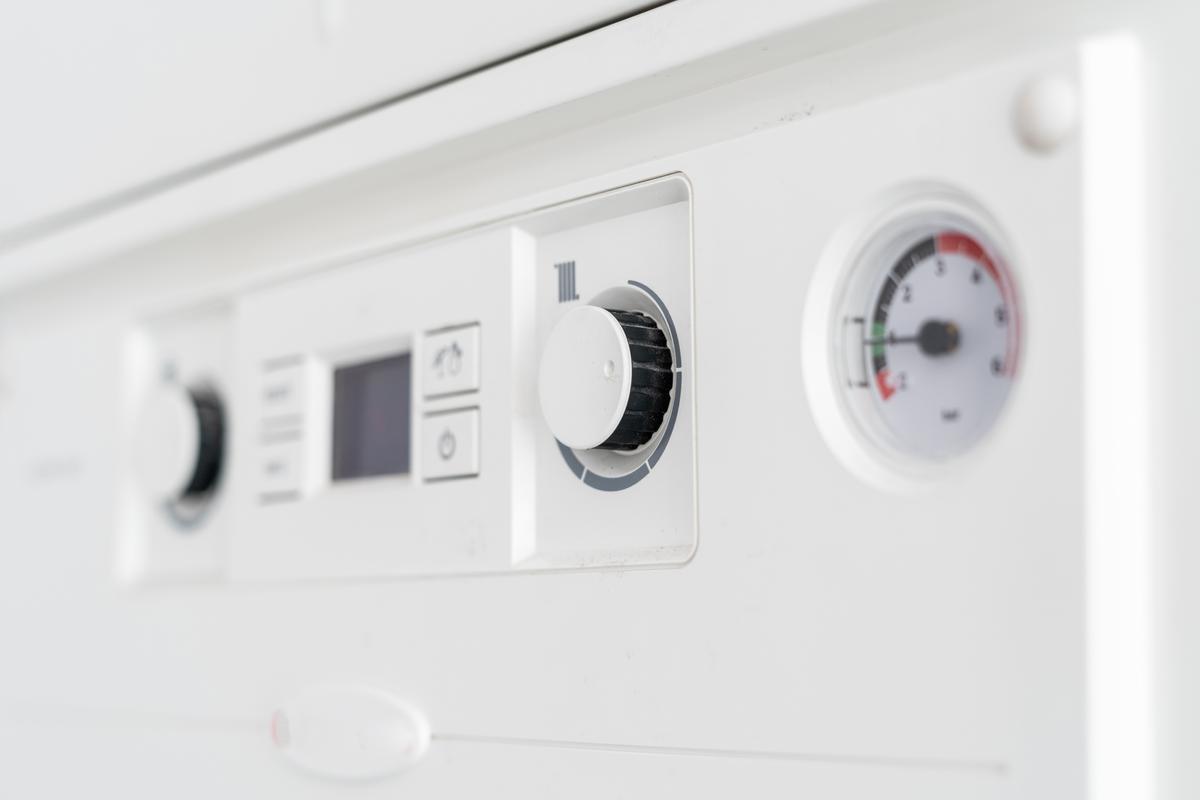Are you mystified by the terms “ideal boiler pressure”, “high boiler pressure”, and “pressure problems”? Worry not! This boiler pressure guide is here to simplify the mystique surrounding these terms. You’ll learn about what the ideal boiler pressure should be, how to tackle if the boiler pressure is too high, and much more. Why is this article worth your time? Because understanding your boiler’s pressure can save you from unexpected breakdowns and even costly repairs!
If you need boiler repair in London, give us a call at 02036748514 , and our team of expert engineers will be at your service in no time!
So, let’s dive right in and unravel the secrets to an optimally functioning boiler!
What is an Ideal Boiler Pressure?
The pressure within your boiler plays a crucial role in ensuring the effective circulation of hot water in your heating system. The ideal boiler pressure, for most central heating systems, should be between 1 and 1.5 bar. You can check the pressure by looking at the pressure gauge near the boiler. If it’s between these readings, your boiler’s operating efficiently.
Why is My Boiler Pressure Too High?
High boiler pressure is a common concern for many homeowners. If the pressure in your boiler exceeds 1.5 bar, it’s too high. The reasons can be numerous: a faulty or damaged pressure relief valve, overfilling of the system, or issues with the expansion vessel. It’s crucial to address high pressure promptly as it can lead to reduced boiler efficiency and even potential system damages.
How Can I Reduce Boiler Pressure?
If you find that your boiler pressure is too high, you can:
- Bleed the Radiators: Releasing excess air from your radiator can help reduce the pressure in the system. Use a bleed valve on each radiator and let out the air until water starts coming out.
- Check the Filling Loop: Ensure that the filling loop, typically a hose near the boiler, isn’t letting in too much water. Sometimes, a leak in this loop can inadvertently increase the pressure.
- Consult with a Professional: If the above steps don’t work or if you’re unsure, it’s best to call a gas safe registered engineer to have a look and assist.
Understanding the Pressure Gauge
The pressure gauge, typically found on the boiler’s front, helps you monitor the pressure within the system. When the boiler heats water, the pressure rises. If functioning correctly, once it reaches 1 bar to 1.5 bar, the pressure relief valve prevents any further rise, ensuring optimal boiler pressure. Regularly checking this gauge can help identify and rectify pressure problems early.
The Role of the Expansion Vessel in Pressure Management
The expansion vessel plays a crucial role in maintaining the boiler’s pressure. This component contains air and water, and as water heats and expands, the air inside the vessel gets compressed, ensuring that the pressure in the system remains stable. If the expansion vessel is faulty, the pressure might become too high or too low.
Is Low Boiler Pressure an Issue?
Low boiler pressure, below 1 bar, can hinder the effective circulation of hot water in your heating system. Common symptoms of low pressure include radiators taking longer to heat up or the boiler shutting off. Causes can range from water leaks in the system to a faulty pressure relief valve. To top up the pressure, you might need to repressurise the system using the external filling loop.
Why is My Boiler Losing Pressure?
Losing pressure can be a sign of a leak in the system, faulty radiators, or issues with the pipework. Other culprits might include a damaged expansion vessel or a malfunctioning pressure relief valve. Regular checks and maintenance can help identify the cause and fix it before it becomes a major problem.
When Should I Call a Gas Safe Registered Engineer?
Always consult with a gas safe registered engineer if:
- The pressure drops suddenly.
- You’re unable to reset the pressure.
- You suspect a leak or any other major fault.
These professionals are trained to handle boiler pressure issues safely and efficiently.
How Do I Look at My Boiler for Pressure Problems?
Periodically inspect the area around your boiler for any signs of water leakage, as this can indicate pressure problems. Also, keep an eye on the pressure gauge and ensure it’s within the 1 to 1.5 bar range when the boiler is operating.
The Importance of Getting Your Boiler Serviced Regularly
An annual boiler service by a certified professional ensures your system runs efficiently and safely. It reduces the chance of leaks developing, ensures the pressure remains at an optimal level, and can identify potential problems before they become major issues.
In Summary:
- Ideal boiler pressure should be between 1 and 1.5 bar.
- High boiler pressure can lead to inefficiencies and potential damages.
- Regularly check the pressure gauge to monitor boiler health.
- Expansion vessels play a key role in maintaining boiler pressure.
- Always consult with a gas safe registered engineer for significant pressure issues or if you’re unsure about troubleshooting steps.
- Regular boiler maintenance can prevent many common pressure problems.
Remember, understanding your boiler is the first step towards ensuring its longevity and efficiency! Stay safe and keep your boiler happy.


